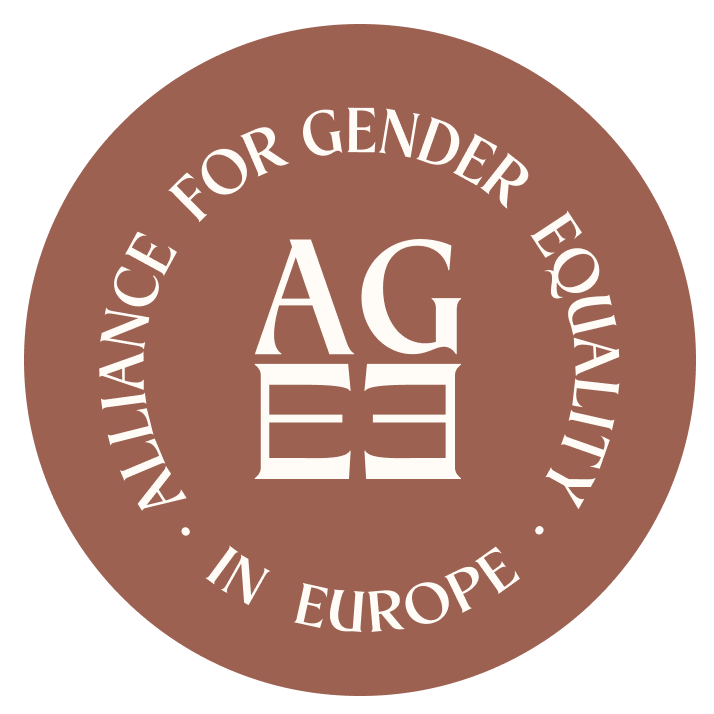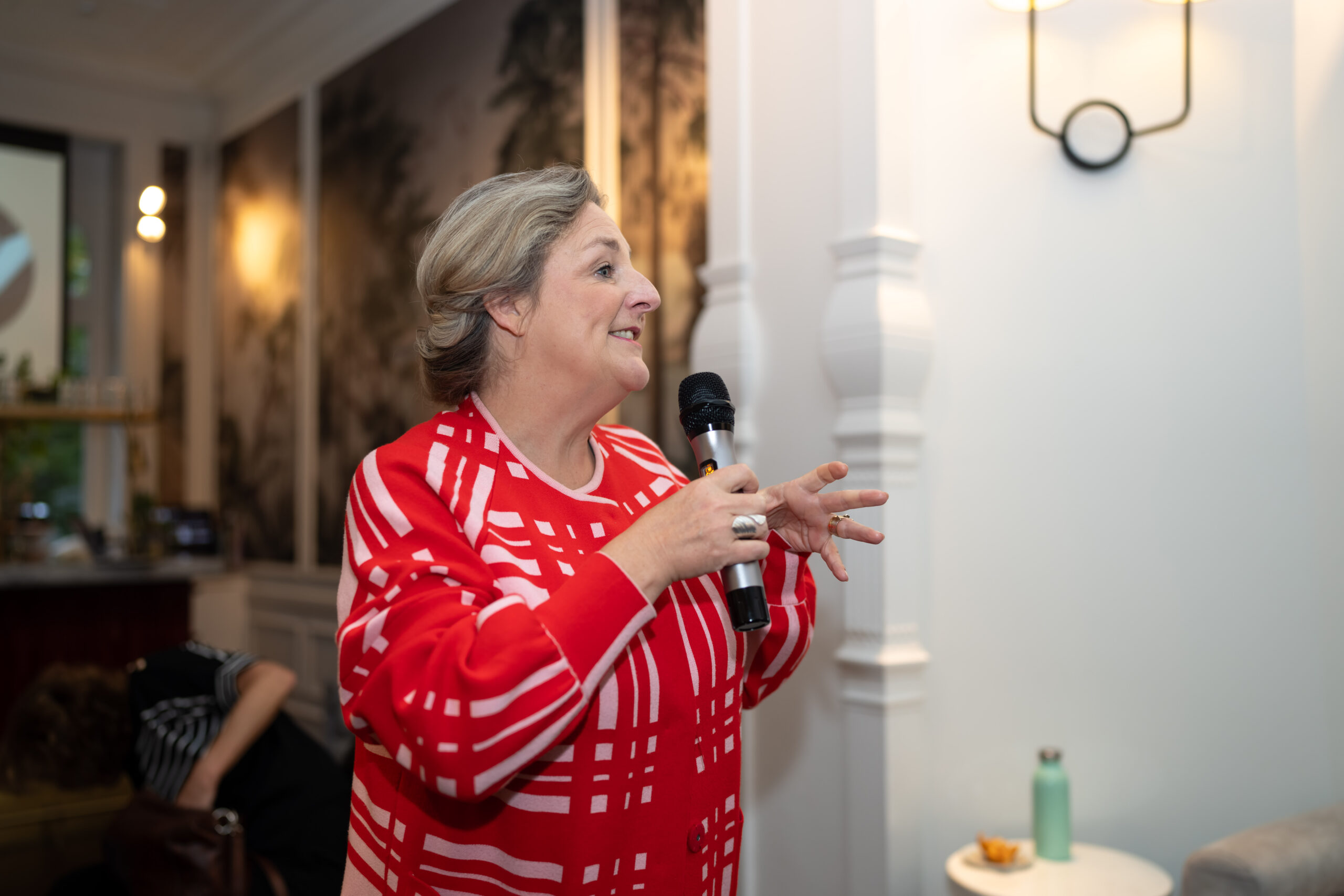Held in Brussels from 16–17 October 2025, the Alliance’s annual grantee convening brought together almost 50 grantee organisations and member foundations to inspire and get inspired, to strengthen relationships and trust, to advance opportunities for joint action, to learn together, and to feel a sense of resilience and solidarity.
The reflections below were written by the convening’s facilitator, Joanna Maycock.
Two days in Brussels. Forty grantees from throughout Europe. Dozens of conversations and one shared commitment: to nurture feminist movements that are resilient, connected, and bold enough to dream in hard times.
It was my great privilege to facilitate the beautiful gathering of grantees of the Alliance for Gender Equality in Europe that brought together gender equality organisations, movements, and funds from across the continent.
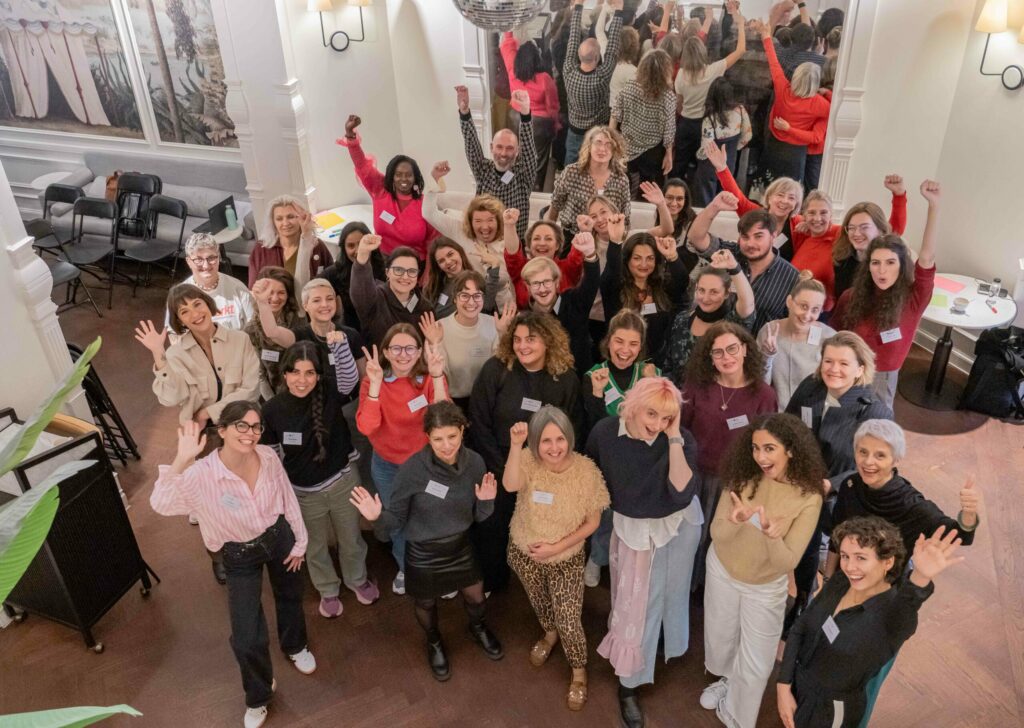
A Shared Reality of Challenge and Possibility
From the very first session, one message rang clear: across Europe, feminist movements are living through turbulence — but also through extraordinary creativity and courage.
In the Balkans, participants described political instability and the rise of masculinist and nationalist movements, but also new forms of artistic and activist collaboration taking shape in response.
From Hungary, Romania, and Bulgaria, Roma women spoke of confronting multiple layers of discrimination — and of a younger generation fearlessly reclaiming feminism.
Across Southern Europe and the Mediterranean, conversations turned to online toxic masculinism and polarisation, yet also to the emergence of new feminist languages around care, consent, ecofeminism, menopause and menstruation.
And in Western and Northern Europe, despite the pressures of funding cuts and political instability, the resilience of networks and the surge of young feminist leadership are undeniable.
The picture that emerged was both sobering and energising: backlash and creativity co-exist. Even as civic space narrows, feminist movements are innovating, organising, and holding each other through uncertainty.
Participants explored four guiding questions that emerged from their own conversations:
- How do we define and communicate feminism today?
- How do we build sustainable societies and feminist movements that last?
- How can intersectionality be truly embedded in our movements as a point of departure, not an add-on?
- And how do we respond to polarisation and disinformation?
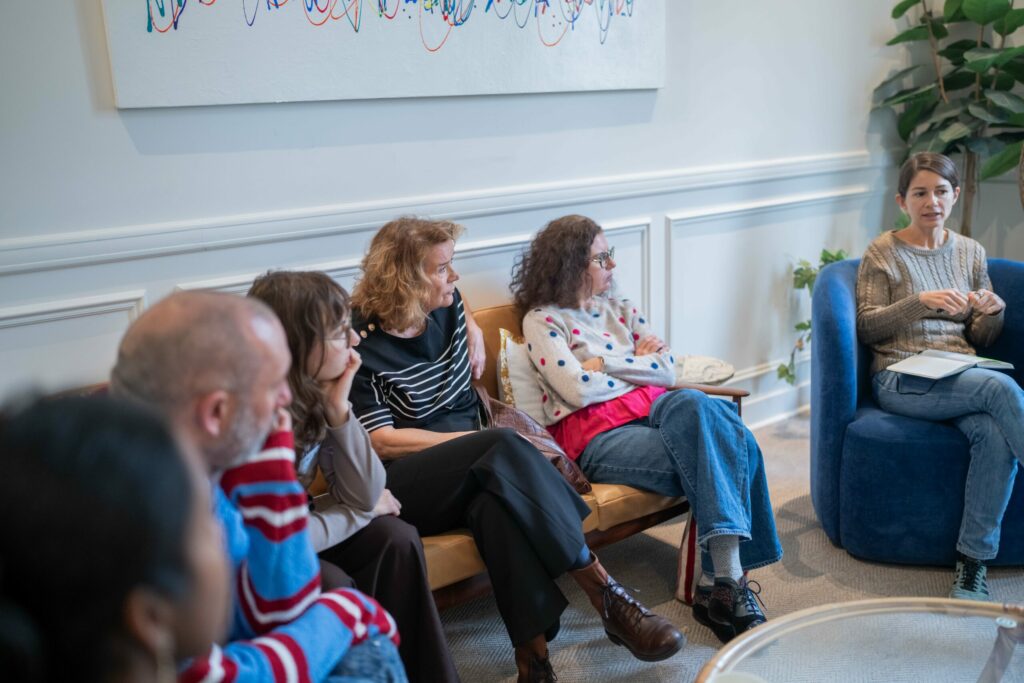
The conversations were alive with laughter, honesty, and hope. In the closing circle, threads from each conversation wove into a shared reflection on what strengthens us and what we still need to grow.
We talked about our sources of strength — from mothers, daughters, and comrades to the work itself, to the bonds of sisterhood and allyship.
We named trauma and rage as fuel for transformation.
We acknowledged how hard it can be to ask for help, even as we care for others.
We drew strength from diversity, belonging, and shared values, remembering that we are, at heart, one human family.
We are part of a bigger picture and a larger energy — one that sustains us and carries us forward, even when the way ahead feels uncertain.
We spoke of belonging as political: listening more than persuading, understanding before convincing. And we reminded ourselves that feminist movements are not just about rights but about relationships — about solidarity strong enough to hold difference and disagreement.
Survivors of violence were named as teachers — models of resilience for how societies can recover and rebuild.
And then came a moment of deep honesty. “In this funding environment that pushes us to compete — are we willing to reject competition?”
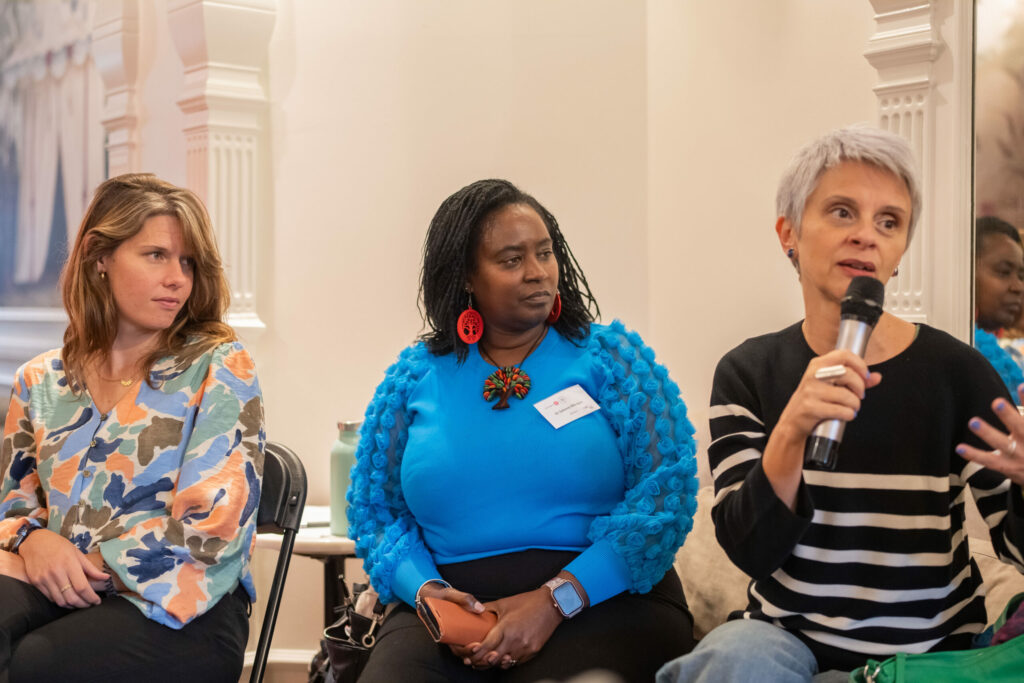
Rethinking Movement Building and Philanthropy
The convening also turned a critical eye toward the role of philanthropy in feminist movement building.
Participants called for long-term, flexible, and trusting funding — support that enables care, imagination, and collaboration rather than compliance and competition.
We remembered how the women’s anti-war movement in the former Yugoslavia survived without external funding because it was rooted in people’s lives, and how other movements faded when the money stopped. The lesson was simple but profound: laws and policies don’t hold if movements aren’t alive beneath them.
While far-right movements appear better funded and more organised – they are certainly very loud – feminist movements are holding a very different source of power, scaling deep and weaving connections and nurturing relationships. Maybe it’s time to reimagine what scale means for us — not as hierarchy, but as connection: many movements, grounded in place, linked by solidarity.
Feminist Economic Justice and Movement Care
Digging more deeply into the heart of our feminist ecosystem. we explored Feminist Economic Justice, inspired by the work of Just Associates (JASS). Participants examined how feminist economics can be guided by values of justice rather than growth — how to revalue care work, address reparations, and integrate ecological and social repair into our understanding of the economy.
Another session focused on Feminist Movement Building, led by women’s funds from across Central and South Eastern Europe. The discussions were raw and real — about exhaustion, funding cuts, and the fragility of feminist organisations.
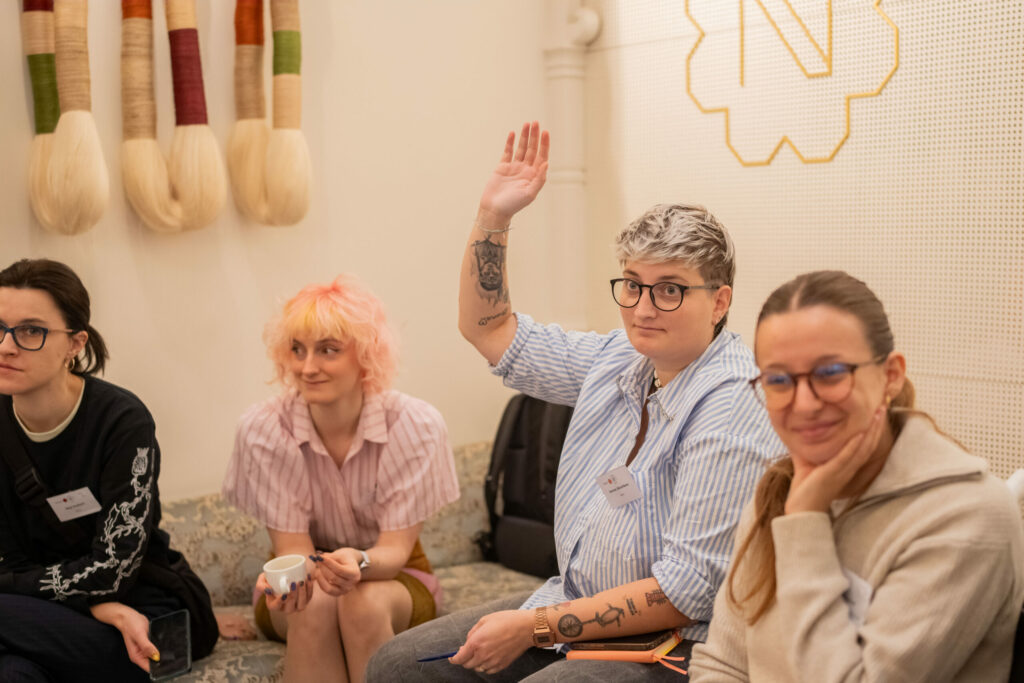
But they were also hopeful. Participants spoke of the need for trauma-informed approaches, collective care, and investment in emotional and spiritual wellbeing as essential parts of sustaining feminist work. They shared how they are learning together on anti-racism and Roma inclusion, naming the exclusion that can persist even within feminist spaces.
The group named the importance of time, consistency, and trust — and the danger of losing trust when relationships are treated as transactional. Listening and dialogue were reframed as a skill, even an act of courage. One participant put it beautifully:“We must expect tension and dispute — they show we’re doing the real work of transformation.”
From Conversation to Collaboration
The afternoon opened into a Collaboration Café, where participants self-organised around the themes they wanted to take forward together. The room buzzed with energy and curiosity — conversations on period poverty, economic violence, succession planning, Roma LGBTQ+ inclusion, intersectional feminist workplace practice, and tools for economic inclusion.
These exchanges were acts of weaving — stitching together the relationships and ideas that make collective action possible. By the end of the day, new collaborations were forming, friendships deepening, and stories ready to travel back into communities.
What We Carry Forward
Feminist organising across Europe is facing deep challenges — but it is also bursting with creativity, resilience, and vision. One theme echoed through everything: the need to carve out space for imagination.
If we only react to crisis, we lose the time to dream — and dreaming is what allows us to build new systems, not just survive old ones.
To meet this moment, we need funding that trusts, leadership that listens, and movements that make space for care as much as for resistance. We talked about nurturing feminist leadership that is bold, compassionate, and collaborative, and about making space for reflection, breathing, and movement — because feminist work lives not just in our minds, but in our bodies.
Our success won’t be measured in numbers or outputs, but in relationships, trust, and shared power.
Joanna Maycock is a feminist organiser and facilitator
She is cofounder of The Flamingo Collective an eco-feminist cooperative of activists and freelancers supporting progressive organisations and movements to tackle root causes of injustice.
